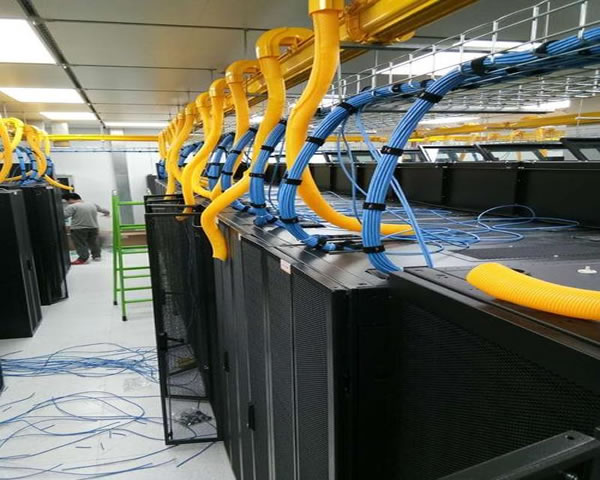as the network security situation becomes increasingly severe, high-defense servers, as an effective protective measure, are attracting more and more attention from the market. especially in the united states, cyber attacks occur frequently, and the demand for high-defense servers by enterprises and individuals continues to increase. this article will deeply analyze the market prospects and development trends of high-defense servers in the united states, helping readers better understand the dynamics in this field.
high defense server, as the name suggests, refers to a server with strong protection capabilities, which is mainly used to resist various network attacks, especially ddos (distributed denial of service) attacks. it filters and cleanses the flow through a variety of technical means to ensure normal access to legal flow. this kind of server is not only suitable for large enterprises, but is also increasingly adopted by small and medium-sized enterprises to protect their own network security.
the united states is a leader in the global cybersecurity market, and the importance of enterprises and government agencies on cybersecurity continues to increase. according to relevant statistics, in recent years, cyber attacks in the united states have occurred frequently, especially in industries such as finance, medical care and e-commerce. in order to reduce potential losses, more and more companies are starting to invest in high-defense servers. demand in this market is expected to continue to grow in the next few years, driving advances in high-defense server technology.

high defense servers have shown wide application potential in multiple fields. first, the financial industry requires robust network protection due to its data sensitivity. secondly, e-commerce platforms also face a large number of risks of cyber attacks, and the use of high-defense servers can effectively ensure transaction security. in addition, the game industry is also an important user of high-defense servers, which can ensure the continuity and stability of game services and improve user experience.
with the continuous evolution of cyber attack methods, the technology of high-defense servers is also constantly being updated. modern high-defense servers not only have the ability to clean traffic, but also incorporate artificial intelligence and big data analysis technology to monitor and identify abnormal traffic in real time. the development of these technologies has made high-defense servers more comprehensive in protection capabilities and provided enterprises with more efficient security solutions.
in the united states, regulations and policies related to cybersecurity are also being continuously improved, such as the "cybersecurity information sharing law". the introduction of these policies has prompted enterprises to pay more attention to network security construction, and also provided policy support for the development of the high-defense server market. in addition, government investment in the field of cybersecurity has also brought more opportunities to the high defense server industry.
although the high-defense server market has broad prospects, the competition is also extremely fierce. there are many service providers on the market, with uneven technology and service quality. when choosing a high-defense server, enterprises need to comprehensively consider the technical strength of the service provider, after-sales service and price. in addition, as the market matures, users' demand for high-defense servers is becoming increasingly diversified, and service providers need to constantly innovate to meet market challenges.
looking ahead, the high-defense server market will continue to develop towards intelligence and automation. the application of artificial intelligence technology will make the protection capabilities of high-defense servers more accurate and can achieve adaptive protection. in addition, with the popularity of cloud computing, cloud high-defense services will also become a trend, and enterprises will increasingly tend to choose flexible and scalable cloud high-defense solutions to meet changing network security needs.
to sum up, high-defense servers have broad market prospects in the united states and their development trends are positive. when choosing high-defense servers, enterprises should pay attention to market trends and choose service providers with strong technical support and high-quality services. at the same time, with the changes in the network security situation, enterprises also need to continuously adjust their security strategies to ensure their own network security. in the future, high-defense servers will promote digital transformation in various industries while ensuring network security.
- Latest articles
- Analysis And Suggestions On Thailand Vps Traffic Billing Method
- U.s. Game High Defense Server Rental Strategies And Suggestions
- Analysis Of The Background And Impact Of Trump’s Server Germany
- Recommendation And Usage Of Korean Native Ip Query Tool
- High-quality Singapore Vps Recommendation And Buying Guide
- Explore The Security And Reliability Of Server Hosting In Germany
- Explain Why The Japanese Server’s Ip Address Is Shown As Us
- An In-depth Discussion Of The Advantages And Disadvantages Of Japanese Cn2 Nodes
- Why Choose Cn2 Gia Server In Malaysia
- Taiwan Cn2 Review: Which Service Is Best For You?
- Popular tags
-
Reviews And Comparisons Of Popular American Server Brands
this article evaluates and compares popular american server brands to help users choose a suitable server. -
How To Maintain Security After Renting A High-defense Us Server
this article discusses the security maintenance measures after renting a high-defense us server to help users effectively protect their servers from network attacks. -
Steps And Precautions For Building A High-defense Cloud Server In The United States
This article introduces in detail the steps and precautions for building a US high-defense cloud server, helping users effectively deal with network attacks and improving website security.


